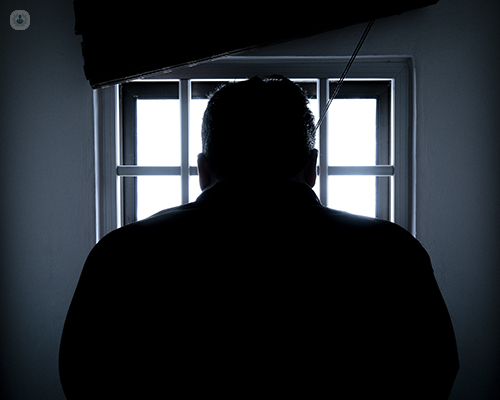

What is the andropause?
Andropause, also known as the male menopause or Testosterone Deficiency Syndrome (TDS), consists of a reduction in the level of testosterone in men aged between 40 and 55 years, inclusive. This phenomenon may be accompanied by changes that occur gradually over time: including diminished sexual ability, changes in attitude and mood; fatigue; loss of energy, of sexual desire and physical agility.

Symptoms of the andropause:
Some of the symptoms of the andropause are:
- Fatigue,
- Irritability,
- Lower sexual desire,
- Less ejaculate,
- Depression,
- Low mood,
- Increase in weight and/or accumulation of fat around the waist,
- Higher risk of heart problems.
The diagnosis is made on the basis of symptoms and a blood test to determine the level of testosterone.
What are the causes of the andropause?
The causes of the andropause are not been fully understood. However, there are several factors known to contribute, such as hereditary factors, cardiovascular diseases and hormone deficiencies. However, the main factor is the level of testosterone, which falls in men of older age.
Can it be prevented?
It is recommended that you undergo urological investigations annually, and to maintain a healthy diet in order to avoid becoming overweight, which is an aggravating factor. It is also important that you do not drink alcohol and that you drink two litres of water every day in order to allow metabolic functions to take place optimally. It is also advisable to do sports or exercise to maintain your cardiovascular health.
What is the treatment?
Andropause can be treated by replenishing the levels of testosterone, via intramuscular injections, gels applied to different parts of the body or by orally.
It is also important that the patient take care of his diet, alcohol intake and stress levels.
